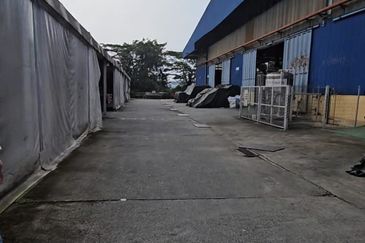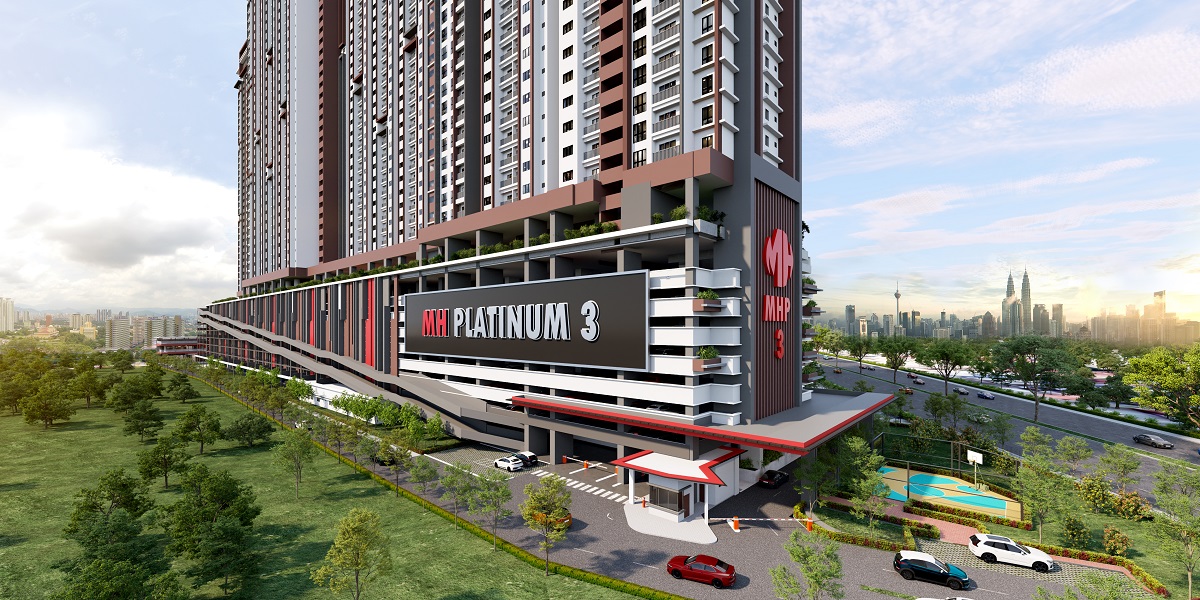
KUALA LUMPUR (June 28): The Federation of Malaysian Manufacturers (FMM) is questioning the rationale behind the key indicators set by the government to determine whether or not Malaysia will graduate to the next phase of the National Recovery Plan (NRP).
In a statement, its president Tan Sri Soh Thian Lai said it was vital that the threshold of fewer than 4,000 daily Covid-19 cases is supported by science and is data-based.
“... there are concerns that even after a four-week lockdown, the number of cases remain high, which indicates that a full lockdown might not be the best solution,” he said.
Manufacturers are suggesting that the government instead impose state or area-specific lockdowns in places with the highest number of cases, to break the chain of infections, according to Soh.
“To minimise the impact on both the industry and economy, states/areas where the cases are lower and under control should be allowed to operate without any distinction between essential and non-essential sectors.
“In addition, the government should also look at increasing the Intensive Care Unit (ICU) capacity, instead of waiting for the ICU bed use to reduce to moderate levels,” he added.
Factories not main source of infections
Soh also said that factories only accounted for around 14.36% or 95,156 cases out of 662,457 total cases reported as at June 14, which demonstrated that factory clusters were not the main source of infections.
Meanwhile, 69% or 398,846 out of 578,105 Covid-19 cases reported as of June 19 were sporadic cases, which could not be traced back to any cluster, he added.
“With the virus in the community, it can easily come into factories, especially through the asymptomatic cases, despite all SOPs and preventive measures in place at the workplace.
“These sources of infections are often not traced back to the community but to the workplace, where more workers are tested as a result of one confirmed infection.
“This in turn is classified as a workplace cluster by the authorities, giving rise to the misconception that the workplace is the primary source of infection.
“In addition, FMM has been consistent in its call to the Government to expedite the vaccination of economic frontliners via the Program Immunisasi Industri Covid-19 Kerjasama Awam Swasta (PIKAS) for the manufacturing sector by the Ministry of International Trade and Industry (MITI), and this will also help eliminate the risk of infections at the workplace and expedite business recovery,” he said.
FMM calls for more aid, coordination among enforcement agencies
Soh also panned the Pemerkasa+ stimulus package announced on May 31 as “grossly inadequate”, especially in terms of direct aid to industries affected by the full movement control order (FMCO) and phase one of the recovery plan.
“In addition, the NRP announced on June 16, 2021 has no strategic direction to reset the economy and assist businesses with their recovery, given the prolonged lockdown period,” he said, reiterating that the government has to provide a RM200 billion stimulus package which includes a RM30 billion direct fiscal injection, to prevent the closure of micro, small and medium enterprises (MSMEs), as well as large-scale retrenchments.
He also urged enforcement agencies to be more coordinated when conducting spot checks or raiding factories, to avoid undue disruption to operations.
“Factories have to face multiple raids by different enforcement agencies, who also have different interpretations of the SOPs and MITI’s approvals.
“Faulting industries on minor issues of SOPs [standard operating procedures] and imposing fines and business closure is also not acceptable. “There is continuous fear amongst the SMEs, especially on enforcement raids and fines, despite them having approvals and all SOPs in place.
“Greater emphasis and focus should be placed by the authorities to contain the sporadic cases, which is the main cause of the spike in infection cases recently,” he said.
Prolonged lockdown risks Malaysia’s competitiveness
Soh also warned that an extended lockdown will hurt Malaysia’s competitiveness as a key regional manufacturing hub for many industries that are part of global supply chains.
“In addition to the non-essential sectors totally not allowed to operate, the essential sectors are also facing production challenges with their reduced operating capacity at 60% of their workforce, as well as some being unable to run, as their supply chains are not given the approval to operate.
“Consequently, many customers of the affected industries cancelled their orders and diverted the contracts to other regions.
“Besides losing their customers permanently, many exporting manufacturers also faced mounting legal consequences, as many of their customers have also had their production stopped as a result of delay in deliveries.
He added that some multinational corporations may also decide to move their operations out of Malaysia, as their operations here are unable to support an uptick in demand from a recovering global economy.
“It is therefore crucial that the government reevaluate sectors that are allowed to operate, with due consideration given to the export-based sectors that have been sustaining our economy through their revenue earnings to the nation, source of employment to the locals, as well as substantial source of direct investments,” he said.
Get the latest news @ www.EdgeProp.my
Subscribe to our Telegram channel for the latest stories and updates
TOP PICKS BY EDGEPROP

Summerglades, Perdana Lakeview West
Cyberjaya, Selangor

Desa Idaman, Taman Puchong Prima
Puchong, Selangor

Country Heights Kajang
Country Heights, Selangor

Bandar Puteri Puchong
Bandar Puteri Puchong, Selangor

Bandar Puncak Alam
Bandar Puncak Alam, Selangor




















